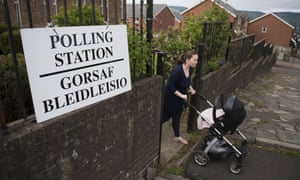
‘I suppose I’d say, ‘It was the best of times, it was the worst of times’, but I was asleep the week I was supposed to read A Tale of Two Cities.’ Photograph: incamerastock / Alamy/Alamy
Under my bed, in a shoebox covered in dust, lie a disused strap-on and my degree. In a sense, this physical copy of my 2:1 in English literature from a middle-ranking university is the most expensive thing I own. This month marks 10 years since I graduated into a thumping recession and – joke’s on you, Student Loans Company – a whole decade in which I haven’t paid off a single penny of my student debt. A fact that has made me look back on those three years, all that time ago, I spent at uni and wonder – what exactly was that?
Obviously, I was incredibly lucky to go to university. Especially at a time when tuition fees were a third of what they are now. Or – perhaps more pertinently – at a time where a global pandemic wasn’t sending the entire education system into a very real existential crisis. I was lucky that my middle classness made higher education an inevitability. Like growing boobs and starting my period, university was a fact of life. When it came to choosing my degree, I simply went with the subject I’d always done best in at school.
It never occurred to me there was any other way. But this was when I was still a a perpetually horny, semi-closeted lesbian teenager with depression and anxiety up to the eyeballs, and the self-esteem of a naked mole rat that finds itself in a hall of mirrors. I was in no way ready to make a major life decision that would cost me tens of thousands of pounds. I had no idea who I was yet, let alone how I should be spending the next three years of my existence.
I assumed I’d muddle through it – just how I’d muddled through GCSEs and A-levels. You do the reading, you churn out essays, you progress to whatever the next thing is that’s expected of you. Plus, the work side of things was a minor consideration compared to the thought of all the other queer girls I might meet. It was going to be fun, eye-opening, vital.
It was and it wasn’t. Over the next three years I would date boys, become even more anxious and depressed, and cultivate a resentment towards “hard” books. To this day, I suffer from a sort of reading-induced narcolepsy. I’ve always been a painfully slow reader; being given a week to read Ulysses along with fluttering mounds of literary theory so dense you’d think it had escaped from the Cern lab, was not a recipe for happiness. When I’m stressed, I sleep. Even by students’ sleepy reputation, I was practically comatose for three-quarters of the time. On the flipside, I made good friends, learned what “dasein” meant, and came out as gay. I suppose I’d say, “It was the best of times, it was the worst of times”, but I was asleep the week I was supposed to read A Tale of Two Cities.
How much of life do we do simply because it’s the “done thing”? Last month, Euan Blair, the son of that guy who was very into the idea that getting more people into higher education was the best way to even the societal playing field, wrote in the Times that degrees are now “irrelevant.” His argument that we need to “retrain the nation” was especially spammy coming from someone who runs a tech startup specialising in apprenticeships.
Should I really have gone to university? I honestly don’t know. All the jobs I’ve ever applied for have required a degree, but then again no one’s ever asked to see the scrap of paper in the dildo box under my bed. What if I’d said I have a first in sub-linear aquatics from Mary Berry College, Cambridge, and ended up in a better position than I’m in now?
What I do know is that if I had the opportunity to go back to university, now would be the time I could actually make the most out of it. At 31, not only do I have a greater sense of who I am, but I know what fascinates me. I’m infinitely more receptive to learning now than I was at 18; and I wish I hadn’t so brazenly pissed my university experience up the wall. When I think of the seminars I turned up to without having done the reading, I feel queasy. If university has played no definable role in the 10 years since I graduated, and I didn’t have the awareness to milk it for everything it was worth at the time, then I ask – once again – what was it? Other than a very expensive and quite interesting blip.
And all the while, I could have just done a Marcus Rashford and become a world-class footballer, led a successful campaign against child poverty, and got an honorary degree – all without going to university. You know, the easy route.
Under my bed, in a shoebox covered in dust, lie a disused strap-on and my degree. In a sense, this physical copy of my 2:1 in English literature from a middle-ranking university is the most expensive thing I own. This month marks 10 years since I graduated into a thumping recession and – joke’s on you, Student Loans Company – a whole decade in which I haven’t paid off a single penny of my student debt. A fact that has made me look back on those three years, all that time ago, I spent at uni and wonder – what exactly was that?
Obviously, I was incredibly lucky to go to university. Especially at a time when tuition fees were a third of what they are now. Or – perhaps more pertinently – at a time where a global pandemic wasn’t sending the entire education system into a very real existential crisis. I was lucky that my middle classness made higher education an inevitability. Like growing boobs and starting my period, university was a fact of life. When it came to choosing my degree, I simply went with the subject I’d always done best in at school.
It never occurred to me there was any other way. But this was when I was still a a perpetually horny, semi-closeted lesbian teenager with depression and anxiety up to the eyeballs, and the self-esteem of a naked mole rat that finds itself in a hall of mirrors. I was in no way ready to make a major life decision that would cost me tens of thousands of pounds. I had no idea who I was yet, let alone how I should be spending the next three years of my existence.
I assumed I’d muddle through it – just how I’d muddled through GCSEs and A-levels. You do the reading, you churn out essays, you progress to whatever the next thing is that’s expected of you. Plus, the work side of things was a minor consideration compared to the thought of all the other queer girls I might meet. It was going to be fun, eye-opening, vital.
It was and it wasn’t. Over the next three years I would date boys, become even more anxious and depressed, and cultivate a resentment towards “hard” books. To this day, I suffer from a sort of reading-induced narcolepsy. I’ve always been a painfully slow reader; being given a week to read Ulysses along with fluttering mounds of literary theory so dense you’d think it had escaped from the Cern lab, was not a recipe for happiness. When I’m stressed, I sleep. Even by students’ sleepy reputation, I was practically comatose for three-quarters of the time. On the flipside, I made good friends, learned what “dasein” meant, and came out as gay. I suppose I’d say, “It was the best of times, it was the worst of times”, but I was asleep the week I was supposed to read A Tale of Two Cities.
How much of life do we do simply because it’s the “done thing”? Last month, Euan Blair, the son of that guy who was very into the idea that getting more people into higher education was the best way to even the societal playing field, wrote in the Times that degrees are now “irrelevant.” His argument that we need to “retrain the nation” was especially spammy coming from someone who runs a tech startup specialising in apprenticeships.
Should I really have gone to university? I honestly don’t know. All the jobs I’ve ever applied for have required a degree, but then again no one’s ever asked to see the scrap of paper in the dildo box under my bed. What if I’d said I have a first in sub-linear aquatics from Mary Berry College, Cambridge, and ended up in a better position than I’m in now?
What I do know is that if I had the opportunity to go back to university, now would be the time I could actually make the most out of it. At 31, not only do I have a greater sense of who I am, but I know what fascinates me. I’m infinitely more receptive to learning now than I was at 18; and I wish I hadn’t so brazenly pissed my university experience up the wall. When I think of the seminars I turned up to without having done the reading, I feel queasy. If university has played no definable role in the 10 years since I graduated, and I didn’t have the awareness to milk it for everything it was worth at the time, then I ask – once again – what was it? Other than a very expensive and quite interesting blip.
And all the while, I could have just done a Marcus Rashford and become a world-class footballer, led a successful campaign against child poverty, and got an honorary degree – all without going to university. You know, the easy route.


 ‘
‘
 Ryan Carters: majoring in economics and aiming for a Test cap © Getty Images
Ryan Carters: majoring in economics and aiming for a Test cap © Getty Images Carters on his way to 198 against Queensland in the 2014-15 Sheffield Shield © Getty Images
Carters on his way to 198 against Queensland in the 2014-15 Sheffield Shield © Getty Images Carters (standing, third from left) with his Team Red at the Phillip Hughes' Tribute match in Kathmandu © AFP
Carters (standing, third from left) with his Team Red at the Phillip Hughes' Tribute match in Kathmandu © AFP